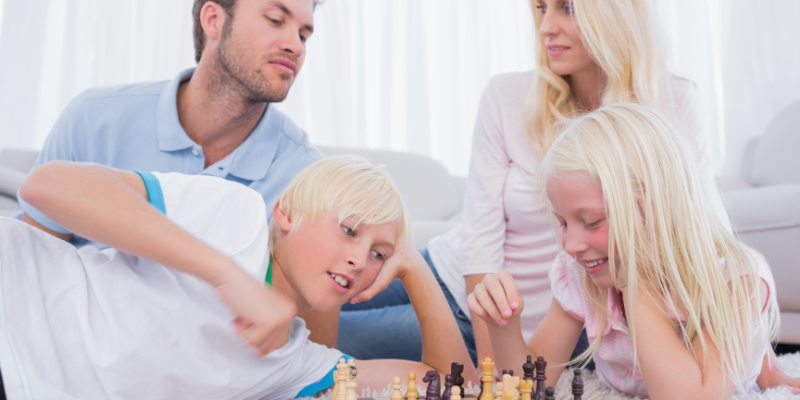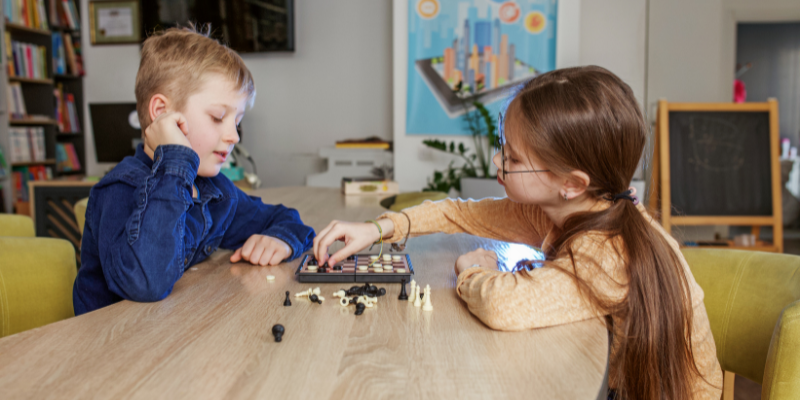Chess is a two-player board game played on a square board with 64 smaller squares, arranged in eight rows and columns. Each player begins with sixteen pieces, including pawns, knights, bishops, rooks, a queen, and a king. The goal is to checkmate the opponent’s king, leading to the end of the game.
Chess has some academic benefits too. The learning skills and memory could be improved by chess. Many sites offer chess learn online. There are coaching classes for beginners that help them to develop skills. Students of all levels can join the chess learn class. Monthly challenges are provided to the students who are willing the chess learn. A very popular site for chess learning is chessklub.com which is highly recommended.
Chess could be very beneficial for students. The benefits are discussed below:
1. Memory and concentration:
Chess improves your memory and concentration. As you are focused on your game, it improves your visual memory. It’s interesting to note that expert chess players show better identification with a specific sort of memory: auditory memory. This is the capacity to recall what you’ve realized through hearing. By concentrating you get to memorize your previous games and it would be easy for you to learn new techniques. Memory and concentration work side by side to each other.
2. Reading skills:
Yes, you read it right. Chess will improve your reading skills too. Different studies showed that chess improves IQ level but the reason how it increases your reading skills is that the process of learning and reading involves understanding, thinking comprehension, and analysis. You will quickly solve your problems and obstacles if you are a chess player.

3. Creativity:
You could be a critical thinker if you play chess. That is why because you keep on thinking in your mind about tactics that how to defeat your opponent or how to kill his King. You will develop your logic faster. Playing a real game of chess is very complex so you could very creative if you want to “checkmate” your opponent.

4. Planning:
If you memorize yourself when you were a young person, possibly you will remember a few things that you have managed without thinking about the outcomes. You realize what is the trademark highlight of all chess players, they design and anticipate constantly, regardless of where they are. While playing chess, arranging is additionally significant, which turns into the piece of the character and makes the individual consistently adhere to those principles. Chess can make you a good planner too.

5. Strategic thinking:
Chess is a game of strategy, requiring a planned approach to outwit opponents. Just as military leaders strategize, chess players position their pieces in a strategic battle. Learning these skills through practice enhances strategic thinking, valuable beyond the game. It aids in everyday decision-making, benefiting not only soldiers and players but anyone facing challenges. Critical thinking also proves vital in academics and workplaces, ensuring preparedness and alternate solutions.
The main thing is the abilities that are being educated through this game go a long way from the board and set up the individual for life troubles, and issues, show them how to address those deterrents imaginatively. In the outcome showing children how to play chess, can be probably the best thing that you will accomplish for them.
Rachel Turner 🖋️
Content Creator and Educator



